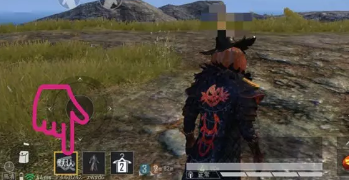make crypto currency Top Featured
Li Ziyuan: There are no matters that should be disclosed but not disclosed. Li Ziyuan issued a change announcement. After the company's self-inspection, the company's current production and operation activities are normal, there is no major adjustment in the market environment or industry policies, and the internal production and operation order is normal; , the company and the controlling shareholder and actual controller of the company have no matters that should be disclosed but not disclosed.Jiayi Co., Ltd.: It plans to increase capital by 28 million US dollars to set up Vietnam Sun Company. Jiayi Co., Ltd. announced that the company plans to increase capital by 28 million US dollars to its wholly-owned subsidiary Jiayi Singapore with its own funds for the establishment of wholly-owned Sun Company Jiayi Drinking Water Co., Ltd. in Vietnam. This investment aims at expanding overseas production bases, enhancing supply chain flexibility, enhancing core competitiveness and accelerating business internationalization.Trump said that he chose Andrew Feargus, Commissioner of the US Federal Trade Commission (FTC), as the FTC chairman.
Oppenheimer: Raise the target price of opening customers from $980 to $1,075, and reiterate the rating of "outperforming the market".Policy combination boosts confidence, and public offering: China's assets will usher in a further increase in valuation. On December 9, the Political Bureau of the Communist Party of China (CPC) Central Committee held a meeting to analyze and study the economic work in 2025. A number of public offerings said that the meeting sent a very positive signal. At present, the economy is resilient, the investor structure is constantly optimized, and the market activity continues to increase. China assets may have an opportunity to raise their valuations again. From the perspective of funds, Jing Shun Great Wall Fund analyzed that the current A-share market is in the most active stage since 2015, and there are many potential bulls in the market. Policy expectations are expected to drive incremental funds into the market, forming a resonance between emotions and funds. (SSE)Japanese manufacturers' confidence index turned negative to the central bank's forecast in December. A short-term survey in Reuters, Japan, found that Japanese manufacturers' business confidence deteriorated further in December due to concerns about US protectionist policies. The survey of 505 large Japanese non-financial enterprises showed that manufacturers' confidence index fell from 5 in November to -1 in December, which was the first time since last February, and the number of pessimists exceeded optimists for the first time in 10 months. The loss of business confidence may cast a shadow over the Bank of Japan's forecast. The Bank of Japan had previously predicted that a steady recovery driven by rising wages and consumption would help inflation reach the 2% target in a sustainable way and justify further interest rate hikes. Many manufacturing industries have reported that business confidence has declined. Among electronic machinery manufacturers, steel and non-ferrous metal manufacturers, pessimists far exceed optimists.
After the strike ended, the delivery of Boeing aircraft dropped to 13 in November. On Tuesday, Boeing reported that it delivered 13 commercial jets in November, less than a quarter of the 56 jets delivered to customers 12 months ago. The number of deliveries in October decreased from 14 in October, when most of the company's aircraft production was still in a state of suspension, and 33,000 factory workers went on strike for seven weeks, which ended on November 5. Boeing shares closed up 4.5% on Tuesday. The aircraft manufacturer said that after weeks of methodical preparations, the company restarted the production of the 737 MAX and loaded the new fuselage into the Renton factory in Seattle.The Bank of Korea increased its liquidity to try to calm the market sentiment, and the Bank of Korea increased its capital injection into the financial market, promising to provide "unlimited liquidity" after the political turmoil intensified. According to the website of the Bank of Korea, the liquidity increased by 14.1 trillion won ($9.8 billion) through repurchase operations last week. The scale of such operations was 18.5 trillion won in November and only 1.5 trillion won in October.Policy combination boosts confidence, and public offering: China's assets will usher in a further increase in valuation. On December 9, the Political Bureau of the Communist Party of China (CPC) Central Committee held a meeting to analyze and study the economic work in 2025. A number of public offerings said that the meeting sent a very positive signal. At present, the economy is resilient, the investor structure is constantly optimized, and the market activity continues to increase. China assets may have an opportunity to raise their valuations again. From the perspective of funds, Jing Shun Great Wall Fund analyzed that the current A-share market is in the most active stage since 2015, and there are many potential bulls in the market. Policy expectations are expected to drive incremental funds into the market, forming a resonance between emotions and funds. (SSE)
Strategy guide
12-14
Strategy guide
Strategy guide
12-14
Strategy guide
Strategy guide
Strategy guide 12-14




























